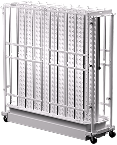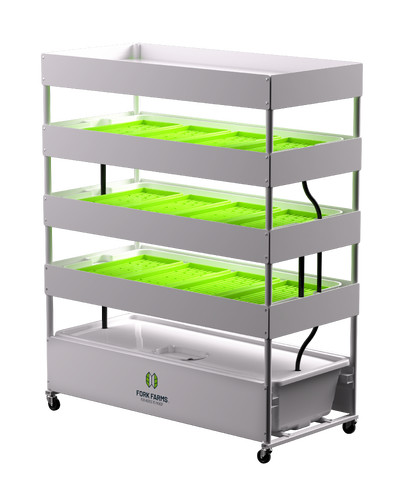How Hydroponic Flex Farms Drive ESG Success
In today’s world, doing good and doing well are no longer at odds.
Businesses across every sector are waking up to a powerful reality: strong Environmental, Social, and Governance (ESG) practices aren’t just ethical, they are also strategic. Customers expect these practices, investors reward them, and talent demands them. Increasingly, the market is moving in favor of organizations that lead with purpose.
At Fork Farms, ESG is not a side initiative; it is central to who we are, and we are on a mission to lead with purpose through fresh food access. Our hydroponic technology is helping schools, nonprofits, businesses, and healthcare systems produce food sustainably and equitably. In the process, we are showing how ESG can be a powerful engine for innovation, resilience, and long-term value.
Let’s break down why ESG matters and how Fork Farms is helping others lead the way.
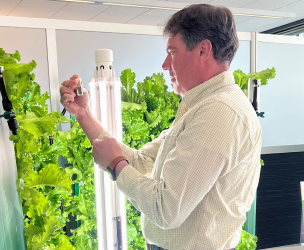
E = Environmental Impact
Sustainability is no longer optional; it’s a competitive advantage. With rising climate volatility, water scarcity, and soil degradation, traditional agriculture faces growing limitations. Meanwhile, consumers are demanding transparency and action.
At Fork Farms, we designed our Flex Farm and Flex Acre systems to produce food with 98 percent less water and 98 percent less land than traditional methods. Our hydroponic technology enables fresh food production anywhere, without harmful chemicals, long-distance shipping, or unnecessary waste. That’s not just better for the planet, it’s better for business.
When organizations grow their own food, they reduce their carbon footprint, improve food security, and gain more control over sourcing and supply. It’s sustainability that’s measurable, scalable, and real.
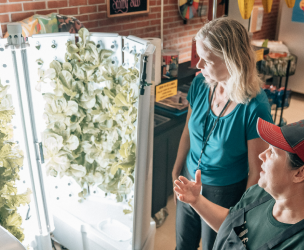
S = Social Responsibility
At its core, ESG is about impact, and few issues have greater impact than food.
Food is connected to everything: health, learning, equity, and community. At Fork Farms, we believe food is also medicine. Fork Farms partners with schools, healthcare providers, correctional facilities, and nonprofits to put food production directly into the hands of the people who need it most.
Every Flex Farm unit supports:
- Nutrition access for students, patients, and vulnerable populations
- STEM and sustainability education in classrooms
- Workforce development in underserved communities
- Local food solutions in areas facing hunger or insecurity.
Our food access technology empowers organizations not just to feed people, but to educate, employ, and uplift them. It’s a social impact model that is geared toward empowerment and systems change.
G = Governance and Transparency
Governance is where values meet accountability. In today’s world, people want to see real, tangible results. That’s why Fork Farms builds transparency into every partnership. Our hydroponic systems are trackable, our outcomes are measurable, and our commitments are long-term.
From procurement to data reporting to partner engagement, we collaborate with organizations to align our work with their ESG and impact goals. Whether you're measuring greenhouse gas reductions or program participation, we can help you tell the story with evidence to back it up.
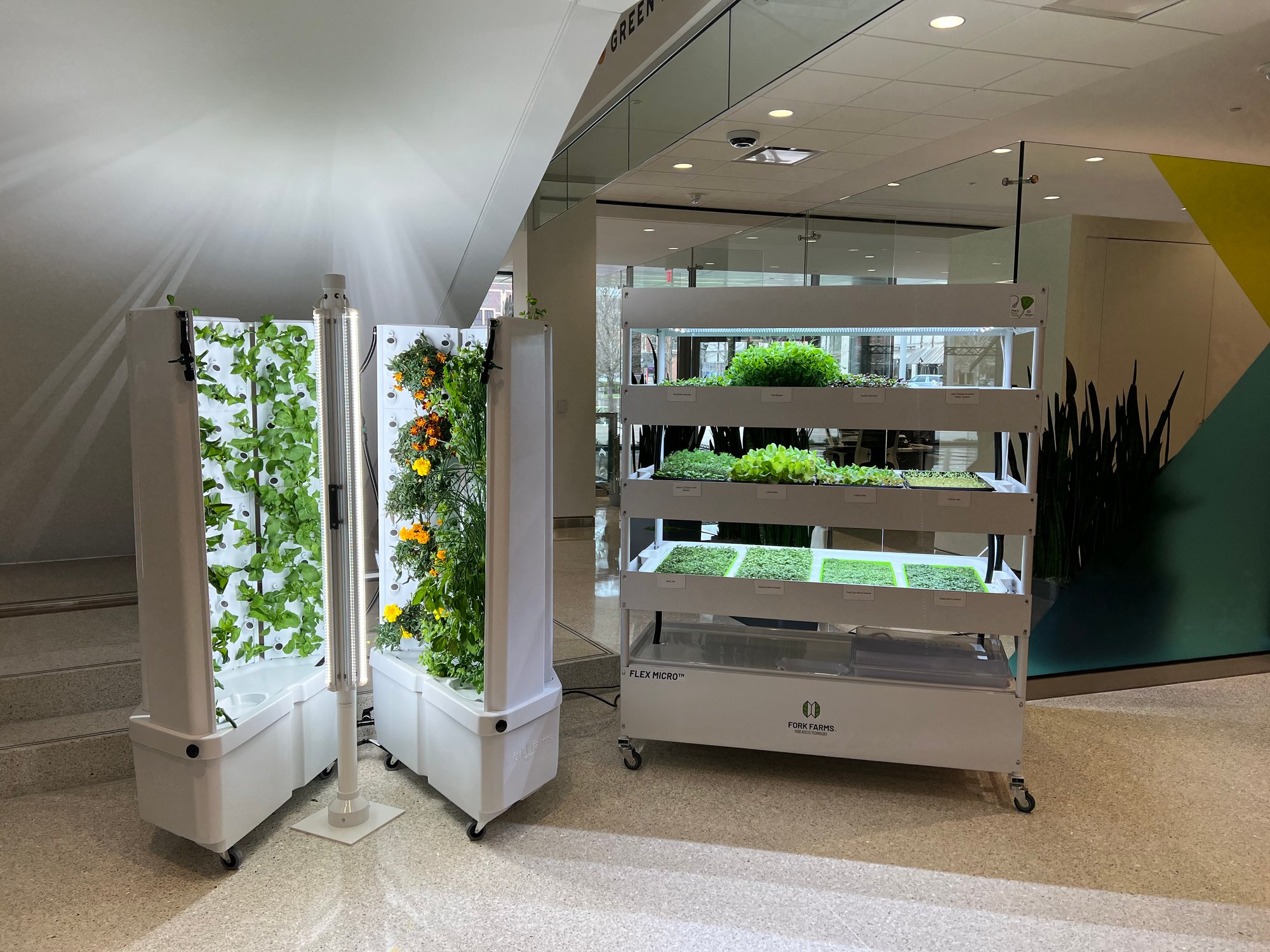
Fork Farms ESG in Action
Our team is committed to building a business that’s regenerative by design. From local manufacturing and low-waste packaging to community-led food initiatives and educational programming, we align our operations with the change we want to see in the world. We believe that food systems should serve people, not the other way around. With our work, we are proving that sustainable agriculture can be scalable, affordable, and rooted in equity.
At Fork Farms, we’re proud to help organizations turn ESG from a buzzword into a business advantage. When you grow food responsibly, you grow stronger communities, healthier people, and a better future for all.
Please contact one of our trustworthy team members to learn more about how we live our mission and how we can grow together.
Important Links:


